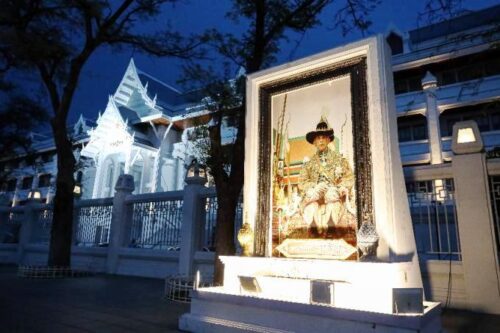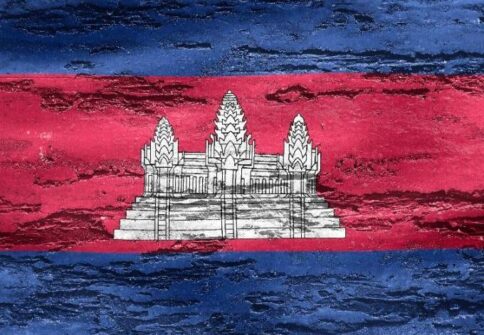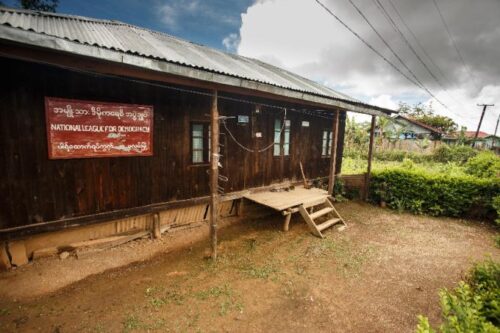Asia 2023. A Year of Uncertainty.
In 2023, Asia will be a continent of global uncertainties, regional trends and attempts at recovery. Four general elections.
It will be the year of India.
The first elections are scheduled in Thailand on 18 June which will design the new National Assembly, or rather the bicameral Parliament. In fact, only the 500-member House of Representatives will be subject to the voters’ choice, while the Senate is made up of 250 members designated by the military leadership that controls the country since the coup in May 2014. Former general Prayut Chan-ocha, who was at the helm of the coup, is the premier in office.
The government is inefficient and responsible for having blocked any attempt at democratic and social development, relaunching the control role of the military, that of safeguarding the monarchical institution and the interests of family-based oligopolies without intervening against corruption, nepotism or wrongdoing in the public sector. This is without also guaranteeing stability and well-being, the rights of citizens, workers, and immigrants.

Bangkok. The portrait of His Majesty King Maha Vajiralongkorn at front of the Supreme Court. 123rf.com
The path to the elections does not highlight any structural reforms needed by the country, only the attempt to safeguard the status quo. Manoeuvers are already under way to consolidate a disqualified power after the vote, trying in every way to deny space to the opposition groups that polls have shown capable of winning.
Overall, the situation prevents Thailand from recovering a political and economic role that would require profound reforms in terms of education, social security, and industrial competition. Also of greater equidistance on the diplomatic level which today associates it ever more closely with Chinese interests. In fact, Cambodia is now a kind of Chinese ‘colony’. A role that was also consolidated in 2022, highlighted with areas of substantial extraterritoriality in the hands of Chinese entrepreneurs where manufacturers, casinos and call centres operate as part of global networks of online scams, often with a labour force working in conditions of substantial slavery after being deceived
in several Asian nations.

The national flag of Cambodia. 123rf.com
The year 2022 saw the end of any opposition from parliament or trade unions to the judicial power that Prime Minister Hun Sen has held for 38 years. No one expects anything less than a plebiscite for his party, that of the Cambodian people, which controls all of the 125 seats in the current legislature, as a result of votes due to being cast to renew the National Assembly on 23 July.
With international pressure to renounce the dismantling of the political opposition, control over non-governmental organizations, the restoration of trade union freedom, freedom of demonstration and information, the government has so far replied with a tightening of measures and a further rapprochement with Beijing which is creating essential strategic structures on a strategic level in Cambodia.
Traditionally close to China also and with an anti-Indian function, Pakistan expects to return to the polls in the autumn to renew its 342-seat National Assembly. A necessary move, after the May 2022 vote of no confidence by Parliament against Prime Minister Imran Khan, leader of the party with the greatest consistency, Pakistan Tehreek-e-Insaf, and after Khan himself was the subject of an assassination attempt on 3 November while leading a protest march to the capital, Islamabad. Khan, who came to power in 2018 – counting on the support of the military and the judiciary in favour of his pragmatic Islamist ideology capable of containing the demands of religious extremism, and attracting support from abroad and from religious minorities – maintains broad popular approval. Various forces are opposed to him, starting with the Pakistan Muslim League now in a government coalition with the secularist Pakistan People’s Party, formerly that of Benazir Bhutto.

NLD sign on building in Falam Town in – Western Myanmar. 123rf.com
In Myanmar, the path towards the vote scheduled for October 10, wanted by the regime to ‘restore democracy’ after the alleged electoral fraud that in November 2020 would have led to victory for Aung San Suu Kyi’s National League for Democracy, risks derailing, as marked by the profound internal crisis which now amounts to a real civil war with a looming humanitarian crisis. Popular support for Nobel Peace Prize winner and former National Councillor Aung San Suu Kyi, subjected to a chain of trials and convictions that seek to weaken her resistance to cooperate with the regime, remains very strong.
And with her, the entire democratic movement gathered around the National League for Democracy, banned but central to the Government of National Unity which secretly organizes the resistance and administers various areas of the country.
Economy
From an economic point of view, 2023 presents itself in Asia (and the Pacific) with contrasting prospects even if generally positive in terms of growth. The greatest difficulty will be to recover from the imbalances created or accentuated during the pandemic and support the recovery of employment, business, welfare, and rights.
As reported by the World Bank, from the end of 2022 three factors could negatively affect growth: global slowdown, growing debt and policy distortions. The current measures to contain inflation and debt are in fact overlapping with those existing with regard to the food, fuel and finance markets. However, in the main countries of the region growth is expected to be higher and inflation lower than in the rest of the world.

Vietnam. Farmer. Max Pixel
Although contained, growth in 2022 was higher than that of other areas of the world, driven by the recovery of domestic consumption, sustained demand for exports of industrial products and goods from the area, and a limited tightening of fiscal and monetary policies which could, however, make matters worse in the coming months.
Obviously, this situation will have to deal with a combination of external problems: a general economic slowdown that curbs demand, and a growing debt burden incentivized by rising interest rates and declining exchange rates. Finally, there are the distorting measures taken by various governments on the internal market trying to address the present difficulties.For East Asia, UNCTAD (United Nations Conference on Trade and Development) projects an expansion of 4.3 per cent compared to 3.3 per cent in 2022 and 6.5 per cent in 2021. Of uncertain significance could be the still be rising cost of raw materials and minor exports. The Chinese situation will obviously play a role, with an expected increase in GDP of 3.9 per cent, the confirmation of which could be affected by the uncertainties of consumption and the ongoing crisis in the real estate sector.
For Southeast Asia, the organization estimates a growth rate of 3.8 per cent, lower than the 4.1 expected in 2022 as a result of tighter domestic monetary policies and in the context of reduced global trade. The traditional regional vulnerability to instability due to financial factors and exchange rate uncertainty, makes the situation even less certain.
Other horizons
In China, Xi Jinping is on his way to a new presidential term in the 14th session of the Chinese National People’s Congress in March after his confirmation as the undisputed leader of the Communist Party of China at the 20th Congress last October.This path too, as well as growing economic difficulties, justified greater interventionism by Xi in 2022 internally, and a more decisive affirmation of the Chinese role in the international context, not without reactions.All trends that will pass in 2023, with three main factors of uncertainty: the leadership’s ability to contain the economic slowdown, relaunching production, exports, and domestic consumption; the developments of the Covid-19 pandemic and the conflict in Ukraine; and commercial and strategic relations with the United States and, in general, the western world.

President Xi Jinping meets with Indian Prime Minister Narendra Modi. Xinhua
On a social level, the aging of the population as well as the difficulty of reviving the birth rate will seriously question the authorities, together with the restructuring of the welfare system, while the fight against corruption and the abuse of power undermines credibility of the State and the hegemonic party will go towards further strengthening.
In India, 2023 will be an important year for its international positioning, starting from the presidency of the G20 in a year that is certainly difficult to interpret. That this happens in the year of the demographic overtaking of China is also significant.
Even the leadership of the Shanghai Cooperation Organization, a Eurasian group that includes, in addition to China, several Central Asian countries, will also point out, albeit casually, the now inescapable role that India has acquired on an economic and political level, placing itself at the same time on a level of competition with the major powers and of mediation with the authority that derives from tradition, geographical position, and population.(Open Photo: Asian girl sews the fishnet. 123rf.com)
Stefano Vecchia



